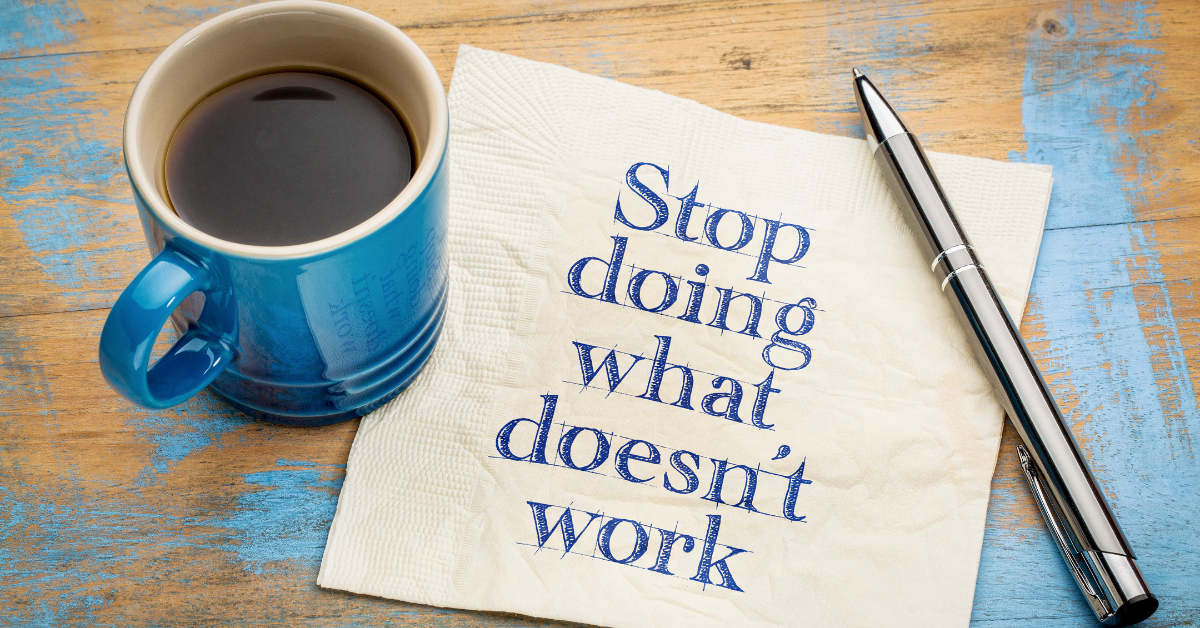The Impact of Stress on our Brain and Performance
The impact of stress is something everyone has experienced in their life at one time or another. Whether you were working endlessly to meet a deadline, studying for a difficult exam, or dealing with the pressures of daily life.
In this blog, we share how the impact of stress affects our minds and bodies as well as some coping mechanisms to use when things feel overwhelming.
How our brains work
Did you know that how we think can be broken into different categories? Each of us has access to each of these styles of thinking; however, every brain is unique in how we tap into these preferences. Both our genetics and experiences in our formative years play a role in how our brains process info and make decisions.
Each thinking attributes deals with stress differently. Read on for a brief description of each way of thinking under stress and if that resonates with you, we’ve provided some performance tips.
Under stress, Analytical thinkers are often so busy gathering information that they lose the value of a quick, definitive decision.
Analytical Performance Tip: Step away from the data for a bit to gain perspective. Recognize you can’t know everything and accept there are some things you just won’t know.
Under stress, Conceptual thinkers tend to skip the details and focus on the big picture.
 Conceptual Performance Tip: Get out of your own head and be present in the moment. Relocate your attention to empowering concepts and ideas.
Conceptual Performance Tip: Get out of your own head and be present in the moment. Relocate your attention to empowering concepts and ideas.
Under stress, Social thinkers can get overextended by solving others’ problems and end up putting their own needs last.
Social Performance Tip: Focus on what you can control – your behavior. Honor your negative emotions and let them go. Express yourself to others in a calm and respectful way.
Under stress, Structural thinkers may dig in their heels and become overly rigid and compulsive about the things they can control.
Structural Performance Tip: Be responsible for yourself and your tasks and delegate to others. Create lists and knock off “low hanging fruit.”
The impact of stress on our minds and bodies
Stress can affect mood, anxiety, and memory and has even been associated with a number of chronic brain and heart diseases.
Stress powers the fight or flight mentality. When stress is chronic, this mentality is heightened and can lead to digestive issues, a poor night’s rest, and even weaken the immune system.
The impact of stress can also differ based on situations going on in a person’s life such as pregnancy or menopause. There are researchers out there who believe when one part of the brain is engaged, other parts of the brain might not have enough energy to complete critical tasks. Have you ever felt forgetful when under a lot of stress? This could be why.
Impact of stress in the workplace
Workplace burnout is not uncommon and the impact of stress can be detrimental to teams. Burnout can come from the company demanding more of their employees but providing less.
Stressed teams and burnt-out employees can lead to low performance, disengagement, and even higher turnover.
So how do we deal with stress in a work environment?
- Communicate your feelings with teammates and express areas where you need assistance. A team is there to support you – use them whenever you can.
- Create an environment where distinct thinking and behaviors are present. Use your team’s diversity as a solution to fight burnout. When team members are able to leverage their preferred way of thinking, they will be more engaged and have a greater connection to their role.
- Keep your employees long-term and help them thrive. The best employees work in a productive environment. When you recognize the stress, it will give you a better idea of when to take a break!
Ways to cope with stress
There is no avoiding it. Stress will always show up at some point or another throughout our lives. It is important to discover coping mechanisms that work for you. When dealing with stress, figure out how to prevent factors that can make the situation worse. These tips can help minimize the impact of stress on your mind and body.
Unplug and Connect to Real Life
Social media is powerful but it can also be a dangerous abyss. It is easy to get sucked in and mindlessly scroll for hours. Try putting your phone down for a bit and be present in the moment. If possible, put your phone on do not disturb mode and limit screen times so you will not be tempted to sneak a peek. Connect with family and friends in a meaningful way; share a meal together, a game night, or go for a walk.
Treat your body with care
One of the best ways to minimize the impact of stress on your body is with a balanced diet and exercise. Find ways to move your body in meaningful ways each day. Whether it be high impact or low – moving your body will release endorphins to help relieve pain and stress.
Treating your body with care also means giving it time to rejuvenate. Get at least 8 hours of restful sleep each night. Create a nighttime routine and aim to go to sleep and wake up at the same time each night, this includes weekends!
A tip many people use to help them get better quality sleep is not using their phone in the evening.
Organize yourself
This tip can be applied in the workplace as well as in day-to-day life. Take time to plan each day and create reasonable to-do lists with what you need to accomplish. By making the list you give yourself a definitive ending point. Make this routine part of your daily habits. Seeing everything written down will help reduce the feeling of being overwhelmed. Stress can be unpredictable so try to only focus on the things you can control.
Unfortunately, a certain amount of stress will always be present. There’s no way to run or hide from it. With the pandemic, this past year has been especially stressful and unpredictable. Remember to stay calm and use these coping mechanisms whenever you can.
NexLevel’s Team Strategists help leaders shift from the frustration of managing people to the satisfaction of achieving goals. We understand the science behind how people interact with their world and will partner with you to help reduce stress in the workplace.
We would love to hear from you.
Contact us today.




